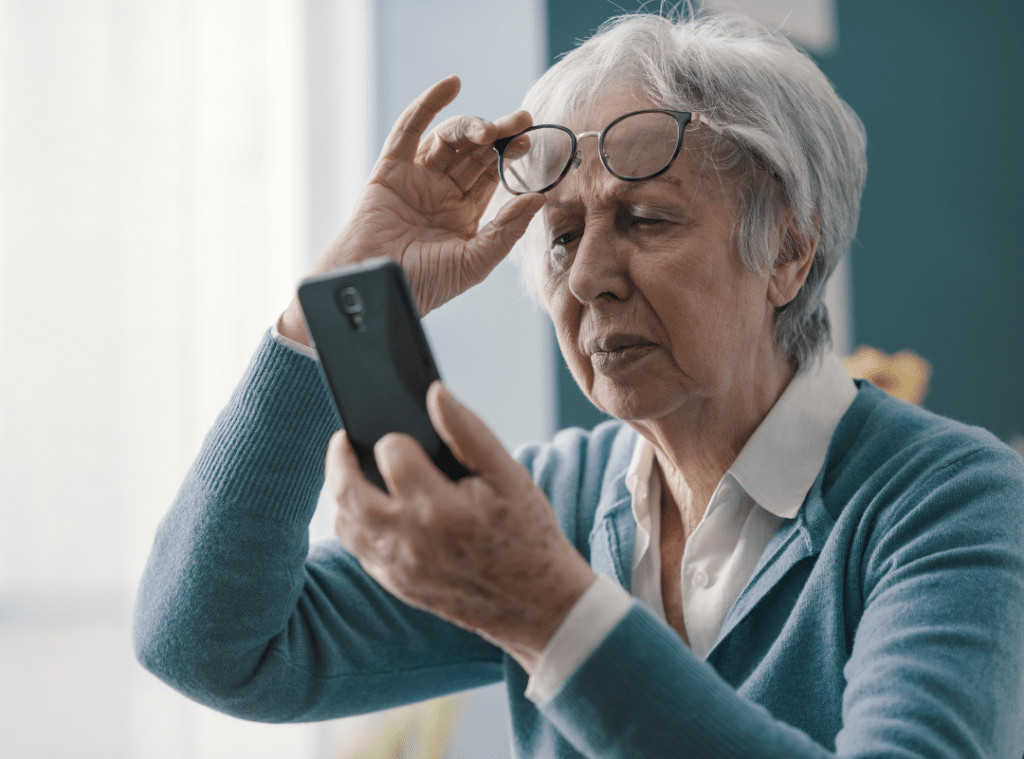Double Vision Causes in the Elderly: What to Know & Prevent
Double vision, or diplopia, can be unsettling, especially for older adults. When vision suddenly splits into two images, it may point to minor or serious health concerns. As people age, the risk of visual disturbances increases, making it essential to understand the underlying factors. Conditions like cataracts, refractive errors, or neurological problems may be involved. These issues can reduce independence and safety if ignored. Knowing what causes sudden, temporary double vision or why it might come and go helps guide treatment. At Westmont of Santa Barbara, prevention begins with awareness. Routine exams, healthy habits, and timely intervention are key to preserving vision. If you’ve ever asked, “What is the most common cause of double vision?”—read on for answers and support.
Understanding Double Vision in Older Adults
Experiencing double vision is more than just a nuisance; it can seriously affect daily life. This condition often leads to misjudging steps, missing objects, or falling among seniors. When evaluating diplopia, doctors consider whether it’s monocular or binocular. Binocular diplopia is often linked to eye muscle or nerve problems, while monocular causes are usually eye-related. What neurological conditions cause double vision? Stroke, multiple sclerosis, or cranial nerve palsies are common culprits. Early diagnosis can prevent worsening symptoms. If you’re facing sudden double vision that goes away, don’t brush it off—schedule an eye exam. Also, a diet rich in eye-supporting nutrients may help slow degeneration.
Refractive Errors and Double Vision
Many older adults suffer from refractive errors like astigmatism or presbyopia. These often distort images, leading to blurred or double vision. A poorly fitted lens or an outdated prescription can contribute to visual disruption. What is the most common cause of double vision? Refractive errors are undoubtedly high on the list. Fortunately, they are easily corrected. Regular vision assessments and updating prescriptions are essential for clarity. Don’t underestimate the impact of a simple pair of glasses. Eye health is a key part of overall wellness, and correcting even minor vision issues can prevent more significant complications.
Vertical Double Vision Causes Explained
Some seniors notice one image appearing higher than the other. This is called vertical diplopia, which usually indicates misalignment between the eyes. Vertical double vision causes often include muscle paralysis or cranial nerve damage. A typical scenario is a fourth nerve palsy, where one eye cannot move properly. Trauma, diabetes, or age-related degeneration might be to blame. Physical therapy or prism glasses may provide relief. Always report new symptoms to a doctor, especially if they develop suddenly or after a fall. Westmont of Santa Barbara prioritizes thorough evaluations and ongoing care to protect your vision.
When Sudden Double Vision Appears and Fades
What causes sudden, temporary double vision? The answer varies. Fatigue, dehydration, or low blood sugar can temporarily cause the eyes to misfire. Medications or alcohol may also play a role. However, even if the double vision disappears, it can still signal an underlying issue. Seniors who notice sudden double vision that goes away should not delay getting it checked. Intermittent symptoms are still meaningful. Keeping your vision in check with routine eye care appointments can make all the difference.
Cataracts and Double Vision Development
Cataracts, including double vision, are a major cause of vision problems in the elderly. Cloudy lenses scatter light, which may create overlapping images. As cataracts develop, this effect often worsens. Seniors may first notice glare at night or difficulty reading. Eventually, vision may become blurry or duplicated. Surgery is highly effective at resolving this issue. Cataracts can significantly reduce quality of life at advanced stages, but early intervention can change that. Understanding how cataracts affect the eye is essential. Learn more about this and other health topics here.
Diabetes and Visual Health
Older adults with diabetes face an increased risk of visual complications. High blood sugar can damage blood vessels in the eye, leading to conditions like diabetic retinopathy. One symptom? You guessed it—double vision. Good management includes regular monitoring and maintaining stable glucose levels. Consider pairing medical oversight with lifestyle support: exercise, balanced meals, and avoiding smoking all promote eye health. Talk to your doctor about how diabetes might affect your sight. Being proactive today can prevent serious consequences tomorrow. Vision is one of your most valuable senses—protect it.

Neurological Conditions Behind Double Vision
What neurological conditions cause double vision? Disorders such as multiple sclerosis, Parkinson’s disease, or a mini-stroke (TIA) can impair eye muscle control. These disruptions cause misalignment and create two images instead of one. Prompt neurological evaluation is vital when diplopia appears without an apparent cause. Seniors with a history of stroke, hypertension, or head trauma are especially at risk. Treatments vary from medication to physical therapy, depending on the root cause. Stay vigilant and share any symptoms with your care team. Swift intervention could restore clear vision and prevent worsening problems.
Supporting Eye Health with Westmont of Santa Barbara
At Westmont of Santa Barbara, we’re committed to helping residents protect and improve their vision. Whether you’re managing diabetes, recovering from cataract surgery, or wondering about double vision causes in the elderly, we’re here for you. Don’t ignore visual changes—small signs may point to bigger issues. Schedule a check-up, learn your options, and stay ahead of potential problems. Our team works with you to build a care plan that prioritizes independence and quality of life.
Call us at 805-845-4921 or schedule a tour today. Your sight deserves the best care available.
How Do The Costs Of Moving Into A Quality Senior Care Community Compare With The Costs Of Staying At Home?Compare The Costs of Senior Living vs Staying at Home
Frequently Asked Questions
How do you fix double vision?
Double vision treatment depends on its underlying cause. Sometimes, it may be corrected with glasses, prism lenses, or eye exercises. For more serious causes like nerve damage or muscle issues, medical treatments such as surgery or medications may be necessary. A comprehensive eye exam is essential to determine the best course of action.
What is the red flag for double vision?
A red flag for double vision is when it appears suddenly and is accompanied by other symptoms such as headache, eye pain, weakness, or difficulty speaking. These may indicate a serious condition like a stroke or neurological issue. If you experience any of these signs, seek emergency medical attention. Early diagnosis can help prevent complications.
Why am I having double vision all of a sudden?
Sudden double vision can result from several causes, including nerve damage, eye muscle problems, stroke, or head injury. It might also be linked to underlying health conditions like diabetes or high blood pressure. If your double vision comes on quickly, getting evaluated promptly is essential. A doctor can help identify the cause and recommend appropriate treatment.
What can cause double vision in elderly people?
In older adults, double vision is often caused by age-related changes such as weakened eye muscles, cataracts, or medical conditions like diabetes and high blood pressure. Neurological issues, including strokes or cranial nerve palsies, are also more common with age. Sometimes, medications or fatigue can temporarily affect vision. A complete medical and eye examination can help identify and address the issue.








